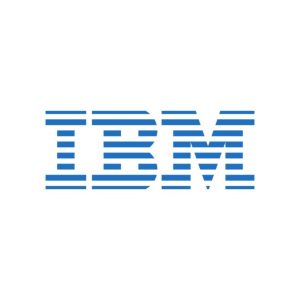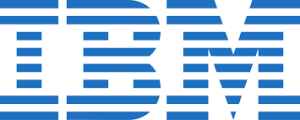- All
- Favorite
- Popular
- Most rated

Learn the Basics of Machine Learning with IBM Watson Studio
This course introduces a case study, dataset, common machine learning algorithms, and developing a machine learning model with IBM Watson Studio.

IBM Robotic Process Automation – Basic II
This course is a continuation of the Basic I course and teaches about assets and parameters, manipulation of PDFs, data table and database.

IBM watsonx.governance Technical Essentials
In this course, the learner is introduced to the concept of AI Governance and watsonx.governance, IBM's end to end solution for governing AI models.

Digital Assistants in IBM RPA – Chatbots
In this course, you learn about digital assistants in IBM Robotic Process Automation (RPA). The digital assistant is a technology that performs tasks or services based on verbal or non-verbal commands

IBM InfoSphere Master Data Management Fundamentals (V11.6)
This course will build a foundation for students interested in what master data is and how it is managed.

Supervised Learning: Classification
This course introduces you to one of the main types of modeling families of supervised Machine Learning: Classification.

IBM Process Mining: Analytics for a Process Mining Project
This course provides instruction in how to create the logic for dashboard widgets using IBM Process Mining.

Introduction to Intelligent Virtual Agents (IVAs) with IBM watsonx Assistant
This course introduces the IBM watsonx Assistant that focuses on actions and steps to build an AI Assistant.

Associate Administrator of IBM Cloud Pak for Data: Learning Path Overview
In this course, you will be introduced to the learning path for associate administrator of Cloud Pak for Data.

Overview of IBM Cloud Pak for Data
This learning offering will tell a holistic story of Cloud Pak for Data including collaboration across an organization, which is key in this platform.

Introduction to Process Mining
This short course provides an introduction to IBM Process Mining.

IBM Process Mining: Data requirements
In this course, you learn how to perform data sampling for a flat process and a multi-level process.

IBM Process Mining Project Journey
This course provides an overview of how to plan and deliver IBM Process Mining projects.

Digital assistants in IBM Robotic Process Automation
You learn about digital assistants in IBM Robotic Process Automation (RPA). The digital assistant is a technology that performs tasks or services based on verbal or non-verbal commands.

Watson Studio Primer
This course is a quick getting started guide to Watson Studio for Data Scientists ranging from a student to professional level.

IBM Robotic Process Automation Dashboard
Learn the main Dashboard concepts, its importance for business, and how to create it in the IBM Robotic Process Automation.

IBM Cognos Analytics: Modeling with Data Modules (V11.1.x)
This training teaches data modelers how to model data using data modules in IBM Cognos Analytics, and how to customize data modules to meet their business needs.

IBM RPA Business User Foundation
In this course, you learn the basic concepts and main features of the IBM Robotic Process Automation for Business User role. They own tasks and are the go-to reference when automation development is i

IBM Robotic Process Automation Introduction
In this course, the student learns what RPA is, what IBM Robotic Process Automation is and gets a high-level introduction to the various components that comprise IBM RPA.

Deep Learning and Reinforcement Learning
This course introduces you to two of the most sought-after disciplines in Machine Learning: Deep Learning and Reinforcement Learning.

Machine Learning Rapid Prototyping with IBM Watson Studio
This course will take the learner through the creation of an end-to-end automated pipeline built by Watson Studio’s AutoAI experiment tool, explaining the underlying technology at work.

AI FactSheets for Transparency and Governance
This course will give you an overview of the concept of transparency and how AI FactSheets can help you achieve transparency tailored to the particular AI model or service.

IBM Process Mining: Advanced product customizations
This course teaches you how to customize KPIs, metrics, and filters with IBM Process Mining.

Web automation with recorder in IBM Robotic Process Automation
In this course, you learn to automate web pages by using the recorder tool in IBM RPA.
The Founding of IBM and Its Evolution Over the Years
IBM’s roots trace back to the early 20th century, when it was initially founded as the Computing-Tabulating-Recording Company (CTR) in 1911 through the merger of three companies that manufactured various devices, including punch card machines and time-keeping equipment. In 1924, the company adopted the name International Business Machines, which aligned with its ambitions to lead the global market in technological solutions. During the 1930s and 1940s, IBM expanded its influence by introducing automated tabulation machines, which became essential tools for businesses and governments. IBM’s success continued with its innovations in mainframe computers in the 1950s and 1960s, which solidified the company’s position as a leader in computing technology. The IBM 701, released in 1952, was the company’s first large-scale electronic computer, and it marked the beginning of IBM’s dominance in the mainframe market.IBM’s Notable Milestones
Throughout its history, IBM has consistently been a leader in groundbreaking technology. Some of the company’s most notable milestones include:- 1964: The launch of the IBM System/360, a family of mainframe computers that could be used for a wide variety of tasks. This innovation was a turning point in the computing industry, allowing businesses to invest in technology that could grow and adapt with their needs.
- 1997: IBM’s Deep Blue, a chess-playing computer, made history by defeating world chess champion Garry Kasparov, showcasing the potential of artificial intelligence.
- 2011: IBM’s AI-powered system, Watson, won Jeopardy! against human champions, further cementing IBM’s leadership in AI research and development.
- 2016: IBM became one of the first companies to provide cloud services with its IBM Cloud platform, which today remains one of the most widely used enterprise cloud platforms worldwide.
- 2020: IBM advanced its quantum computing efforts by launching the IBM Quantum Experience, a cloud-based platform that allows researchers and developers to access quantum computers.
IBM’s Educational Offerings and Certifications
IBM’s dedication to education is evident in the wide range of courses it offers across multiple domains of technology. The company’s IBM Skills Academy is an industry-leading educational platform that provides learners with in-demand skills. IBM’s courses on EdCroma include specialized training in:- Data Science: Master the fundamentals and advanced techniques of data analytics, machine learning, and AI.
- Cloud Computing: Learn to develop and manage cloud infrastructure using IBM Cloud and other industry-leading tools.
- Blockchain: Gain expertise in blockchain development and its applications in finance, supply chain, and cybersecurity.
- Cybersecurity: Learn about the latest threats and how to defend against them, leveraging IBM’s extensive experience in securing enterprise-level systems.
- Quantum Computing: Explore the future of computing with IBM’s quantum education programs, which provide hands-on experience with quantum algorithms and development.
IBM’s Approach to Learning
IBM’s educational philosophy is centered on continuous learning and skill development. As technology evolves, so do the demands of the workplace. IBM ensures that learners stay ahead of the curve by offering courses that reflect the latest trends and technological advancements. Courses are designed to be interactive and engaging, with hands-on projects and case studies that help students apply what they’ve learned to real-world scenarios. Additionally, IBM emphasizes the importance of industry collaboration. Many of the company’s courses are developed in partnership with leading academic institutions and industry experts. This ensures that the curriculum is not only academically rigorous but also aligned with the needs of the business world.Why Choose IBM as Your Educational Partner?
IBM’s legacy of innovation, combined with its commitment to education, makes it a top choice for learners who want to excel in the tech industry. By enrolling in IBM’s courses on EdCroma, students gain access to:- World-class instructors with decades of industry experience.
- Cutting-edge resources and tools for hands-on learning.
- Globally recognized certifications that enhance career prospects.
- A community of industry professionals and thought leaders who are shaping the future of technology.

